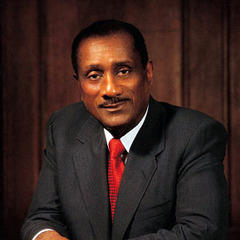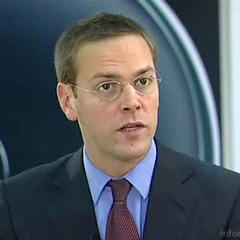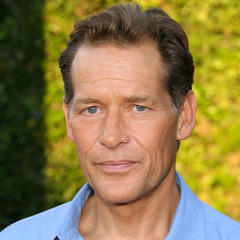Jonathan Mayhew Quotes

Jonathan Mayhew (1764). “Remarks on an Anonymous Tract, Entitled An Answer to Dr. Mayhew's Observations on the Charter and Conduct of the Society for the Propagation of the Gospel in Foreign Parts: Being a Second Defence of the Said Observations. By Jonathan Mayhew, D.D. Pastor of the West-Church in Boston”, p.62
Jonathan Mayhew (1750). “A Discourse Concerning Unlimited Submission and Non-resistance to the Higher Powers: With Some Reflections on the Resistance Made to King Charles I, and on the Anniversary of His Death: in which the Mysterious Doctrine of the Princes' Saintship and Martyrdom is Unriddled: the Substance of which was Delivered in a Sermon Preached in the West Meeting-house in Boston the Lord's-day After the 30th of January, 1749/50...”, p.39
Jonathan Mayhew (1750). “A Discourse Concerning Unlimited Submission and Non-resistance to the Higher Powers: With Some Reflections on the Resistance Made to King Charles I, and on the Anniversary of His Death: in which the Mysterious Doctrine of the Princes' Saintship and Martyrdom is Unriddled: the Substance of which was Delivered in a Sermon Preached in the West Meeting-house in Boston the Lord's-day After the 30th of January, 1749/50...”, p.29
There are men who strike at liberty under the term licentiousness
Jonathan Mayhew (1969). “Sermons: Seven Sermons: A Discourse, Concerning the Unlimited Submission and Non-resistance to the Higher Powers. The Snare Broken”
There are others who aim at popularity under the disguise of patriotism
Jonathan Mayhew (1750). “A Discourse Concerning Unlimited Submission and Non-resistance to the Higher Powers: With Some Reflections on the Resistance Made to King Charles I, and on the Anniversary of His Death: in which the Mysterious Doctrine of the Princes' Saintship and Martyrdom is Unriddled: the Substance of which was Delivered in a Sermon Preached in the West Meeting-house in Boston the Lord's-day After the 30th of January, 1749/50...”, p.55
Jonathan Mayhew (1750). “A Discourse Concerning Unlimited Submission and Non-resistance to the Higher Powers: With Some Reflections on the Resistance Made to King Charles I, and on the Anniversary of His Death: in which the Mysterious Doctrine of the Princes' Saintship and Martyrdom is Unriddled: the Substance of which was Delivered in a Sermon Preached in the West Meeting-house in Boston the Lord's-day After the 30th of January, 1749/50...”, p.38
Jonathan Mayhew (1969). “Sermons: Seven Sermons: A Discourse, Concerning the Unlimited Submission and Non-resistance to the Higher Powers. The Snare Broken”
Jonathan Mayhew (1750). “A Discourse Concerning Unlimited Submission and Non-resistance to the Higher Powers: With Some Reflections on the Resistance Made to King Charles I, and on the Anniversary of His Death: in which the Mysterious Doctrine of the Princes' Saintship and Martyrdom is Unriddled: the Substance of which was Delivered in a Sermon Preached in the West Meeting-house in Boston the Lord's-day After the 30th of January, 1749/50...”, p.33
Jonathan Mayhew (1750). “A Discourse Concerning Unlimited Submission and Non-resistance to the Higher Powers: With Some Reflections on the Resistance Made to King Charles I, and on the Anniversary of His Death: in which the Mysterious Doctrine of the Princes' Saintship and Martyrdom is Unriddled: the Substance of which was Delivered in a Sermon Preached in the West Meeting-house in Boston the Lord's-day After the 30th of January, 1749/50...”, p.54
Jonathan MAYHEW (1750). “A Discourse [on Rom. xiii. 1-8] concerning unlimited submission and non-resistance to the higher powers: with some reflections on the resistance made to King Charles I., and on the anniversary of his death, etc”, p.55
Jonathan Mayhew (1969). “Sermons: Seven Sermons: A Discourse, Concerning the Unlimited Submission and Non-resistance to the Higher Powers. The Snare Broken”
Jonathan Mayhew (1969). “Sermons: Seven Sermons: A Discourse, Concerning the Unlimited Submission and Non-resistance to the Higher Powers. The Snare Broken”
Jonathan Mayhew (1750). “A Discourse Concerning Unlimited Submission and Non-resistance to the Higher Powers: With Some Reflections on the Resistance Made to King Charles I, and on the Anniversary of His Death: in which the Mysterious Doctrine of the Princes' Saintship and Martyrdom is Unriddled: the Substance of which was Delivered in a Sermon Preached in the West Meeting-house in Boston the Lord's-day After the 30th of January, 1749/50...”, p.40
Jonathan Mayhew (1750). “A Discourse Concerning Unlimited Submission and Non-resistance to the Higher Powers: With Some Reflections on the Resistance Made to King Charles I, and on the Anniversary of His Death: in which the Mysterious Doctrine of the Princes' Saintship and Martyrdom is Unriddled: the Substance of which was Delivered in a Sermon Preached in the West Meeting-house in Boston the Lord's-day After the 30th of January, 1749/50...”, p.55






